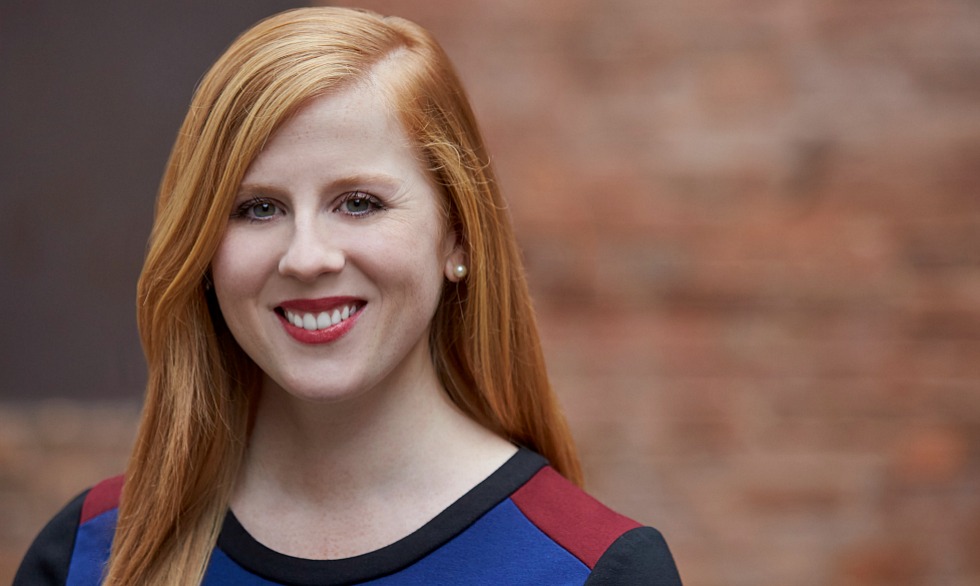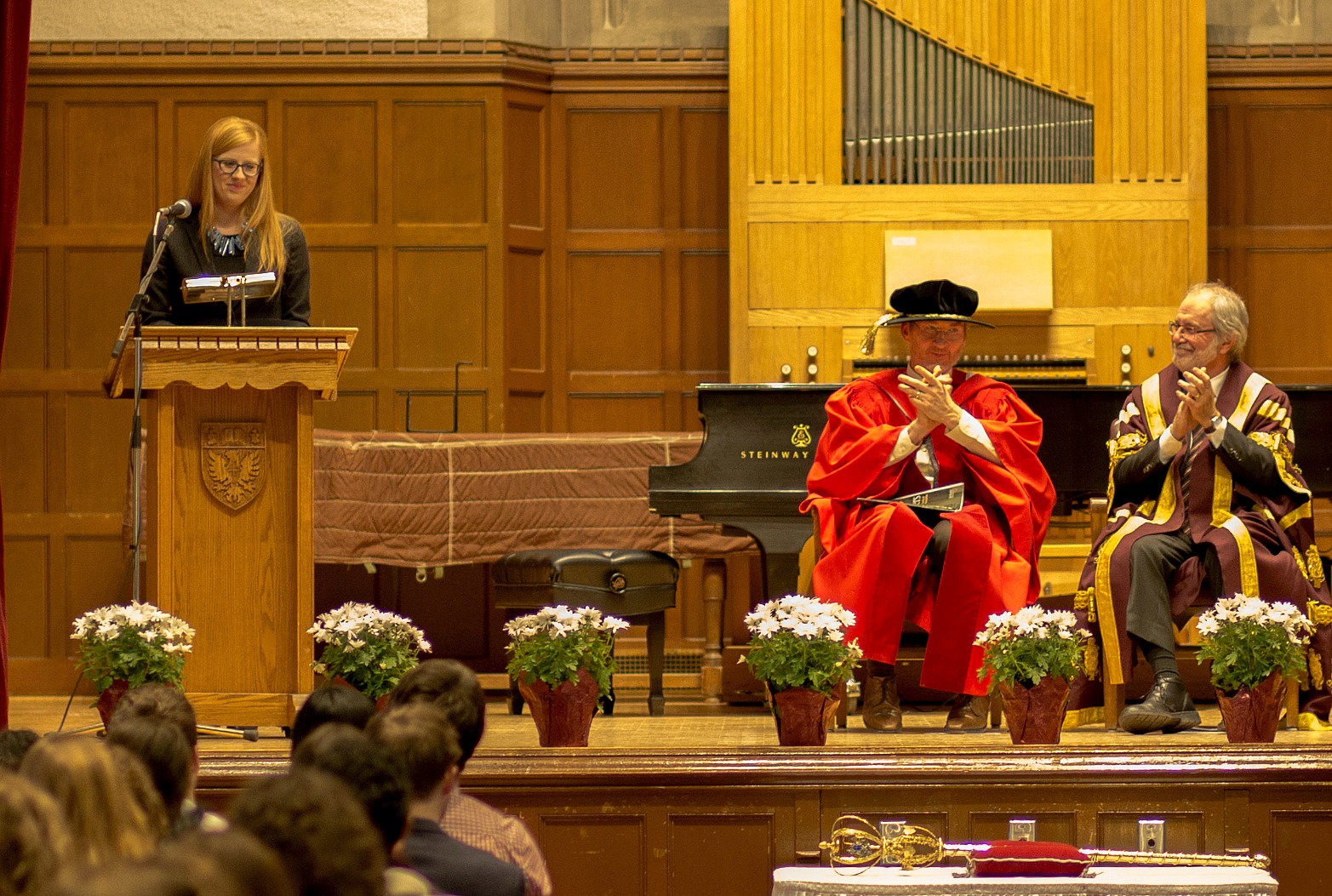McMaster alumna says the world needs “humanities-minded” people

Diana Weir, McMaster alumna and recently named executive director of the Hamilton Philharmonic Orchestra talks about her career path and how her Humanities education helped lay the groundwork for her success.
Music has been a common thread throughout Diana Weir’s life.
It’s a passion that began early on when she learned to play the piano as a child, and was nurtured as a student in McMaster’s Faculty of Humanities where she completed a combined degree in Music and Cultural Studies.
“I knew I needed music to be part of my life in some way and that it was something that really spoke to me as an individual,” says Weir who since graduating in 2008, has built a successful career in arts administration, working with a number of arts organizations, including the Canadian Opera Company and the Hamilton Philharmonic Youth Orchestra, to bring what she calls the “transformative” power of the performing arts to the public.
Recently named the Executive Director of the Hamilton Philharmonic Orchestra (HPO), she is now focused on connecting the music of the HPO to audiences in the Hamilton community.
Weir, who earned a Master’s Degree in 2015 after completing the McMaster-Syracuse Master of Communications Management program, says the skills and values she developed as a Humanities student have helped lay the groundwork for her success. She recently spoke to the Daily News about her career path, what it’s like to work in the arts sector, and what the Humanities have taught her:
When you were a student, did you have any idea where your career path would lead you?
I didn’t really have a sense when I was in school of where I would go and where I would be. I didn’t discover this concept of arts administration until I was in my fourth year at McMaster when I came across this website, WorkInCulture and I thought, ‘Oh my gosh, you can work in the arts, but not perform, that’s so exciting!’ When I discovered this field existed, I knew it was where I wanted to be and I’ve been here ever since.
How did you get your start?
I saw an internship posting in public relations at the Canadian Opera Company – writing copy, doing media clippings, supporting the public relations team – I thought, ‘I could do that.’ So I applied and learned on the job. I got to go to performances and rehearsals and I saw that communicating to the world about this art form was a worthwhile endeavour. I did a lot of my own professional development on the side, reading about public relationships and the arts and I just sort of became someone who knew about these things.
Once I was working in more senior roles, I found that I wanted a more formalized education component to help ensure that I was as informed as I could be. I was accepted into the McMaster Syracuse Master of Communication program, which was really beneficial for me, I enjoyed it and found in intellectually stimulating.
How do you like working in the non-profit arts sector?
I really enjoy it because I quite like feeling personally committed to a mission. Non-profits are mission-based and although money is something they need to achieve their goals, it’s not the goal in itself.
I have always felt an affinity toward the mission of whatever organization I’m working with whether it be the Hamilton Youth Orchestra, a theater company, the Canadian Opera Company, or the HPO. I really believe in what we’re doing and so I feel very committed to it and personally and professionally involved. The relationship between purpose and profit and working toward the public benefit, these are things that really resonate with me.
How did your education in the Faculty of Humanities prepare you for your career?
Being a humanities student taught me how to talk to people, how to work with many diverse stakeholders and how to present ideas in a clear and concise way and those are really important things in my line of work.
The values that I learned from my education in humanities – to be aware of my impact on the public, to have a desire to pursue quality and to put value into the world – they absolutely contribute to both in my professional life and in my personal life. Studying the humanities gave me the ability to think critically about a problem and gave me the confidence to speak up about issues. I learned to talk to different kinds of people so that no matter who I’m engaging with, we’re engaged in a mutually beneficial exchange of thoughts. These are all things that are taught in the humanities.
Q: What advice do you have for Humanities students?
I think students can be very hard on themselves. I think sometimes Humanities students feel like to make their mark on the world they have to go dig wells in Africa, but there are a lot of opportunities to make meaningful contributions to society in small, incremental ways. They should take time to learn what their interests and values are so that over time they can find the place in the world they feel most connected to.
I also don’t think all Humanities students need to work in the non-profit sector. I actually hope they don’t because we really need humanities minded people in fields like commerce, and manufacturing because when you bring in a diversity of people with different ideas, it can really contribute to the betterment of those fields and bring a different perspective to the pursuit of commercial success.

Diana Weir recently spoke to students at the Faculty of Humanities 36th Annual Award Assembly, held in Convocation Hall.

